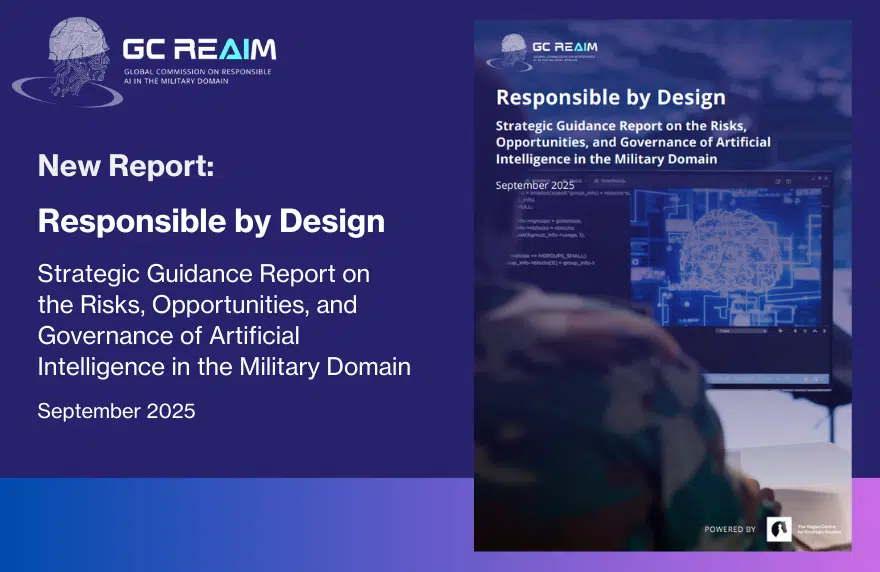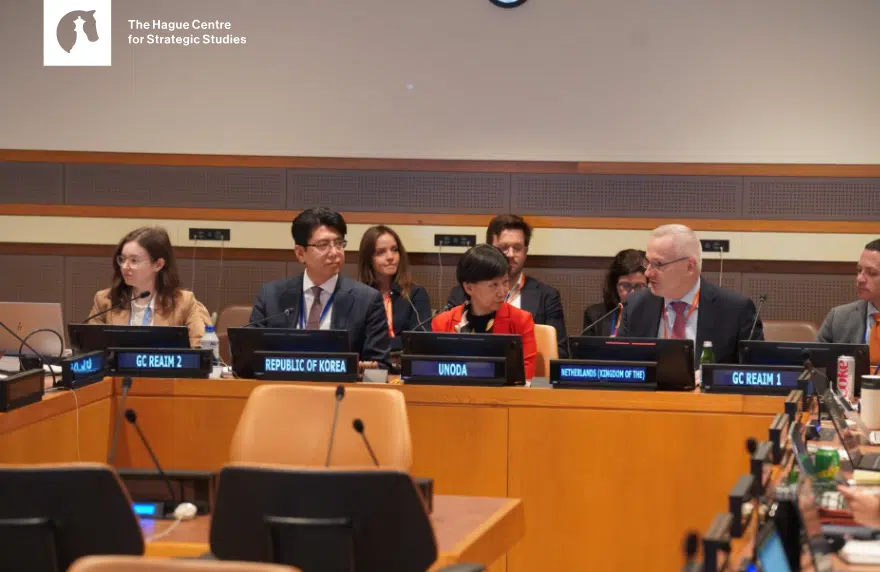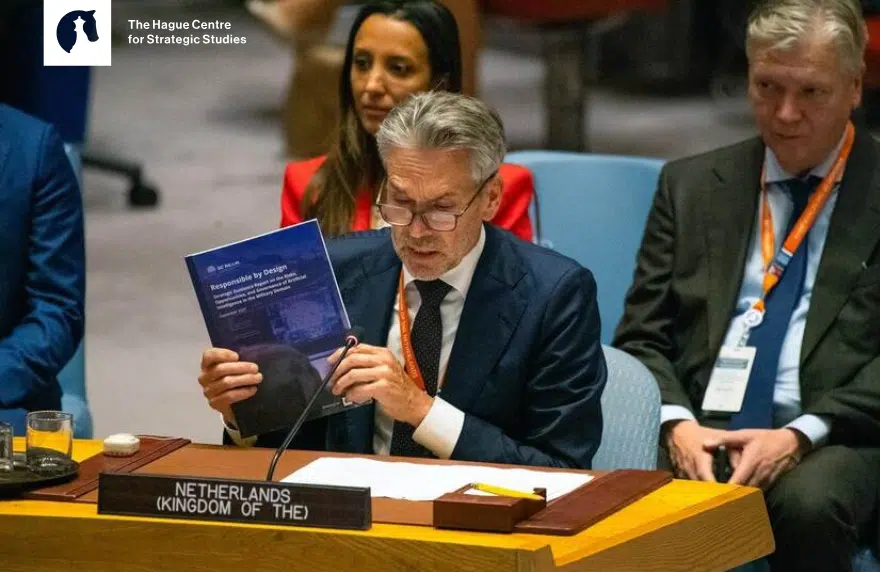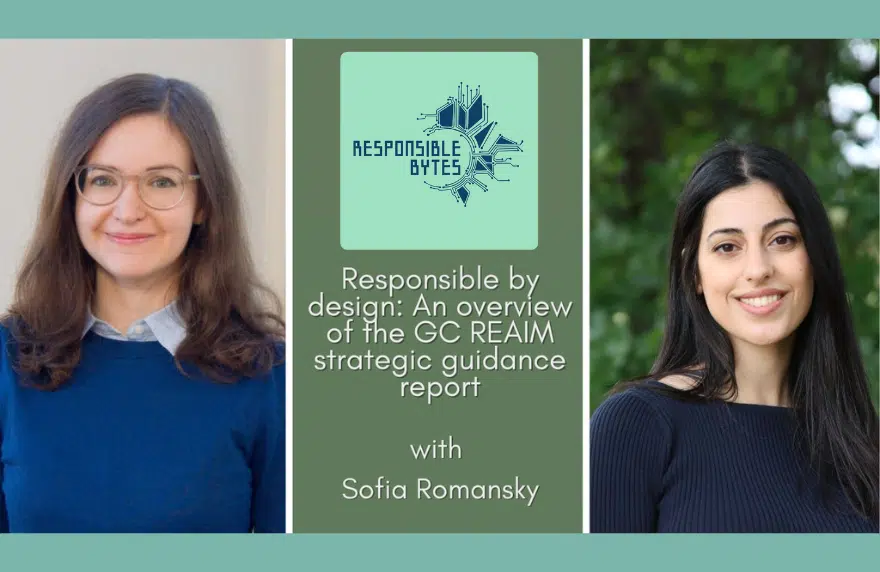The Global Commission on Responsible Artificial Intelligence in the Military Domain (GC REAIM) published its report, Responsible by Design Strategic Guidance Report on the Risks, Opportunities and Governance of Artificial Intelligence in the Military Domain on 24 September 2025.
During the side-event in the margins of the First Committee, the Kingdom of the Netherlands, the Global Commission (GC) on Responsible Artificial Intelligence in the Military Domain (REAIM) members and its Secretariat (the Hague Centre for Strategic Studies) held a conversation with parties and communities working at the intersection of AI.
The side-event marked the culmination of 18 months of work by the Commission’s interdisciplinary and interregional experts aimed at identifying practical options to ensure the responsible development and use of AI across the life cycle. It brought together senior officials, commissioners, and experts to discuss the findings and recommendations of the report as well as share initial reflections and questions, with an eye towards next steps for governance.
The event featured opening remarks by Izumi Nakamitsu, High Representative for Disarmament Affairs, Ambassador Robert in den Bosch, Permanent Representative of the Kingdom of the Netherlands and Ambassador Si-jin Song, Permanent Representative of the Republic of Korea to Conference on Disarmament in Geneva. The opening remarks were followed by a briefing on the Strategic Guidance Report by the GC REAIM Project Coordinator, Sofia Romansky. Afterwards, the side-event featured discussion and initial reflections with two other GC members: Dr Michael Horowitz (GC REAIM Commissioner) and Dr. Giacomo Persi Paoli (GC REAIM Expert).
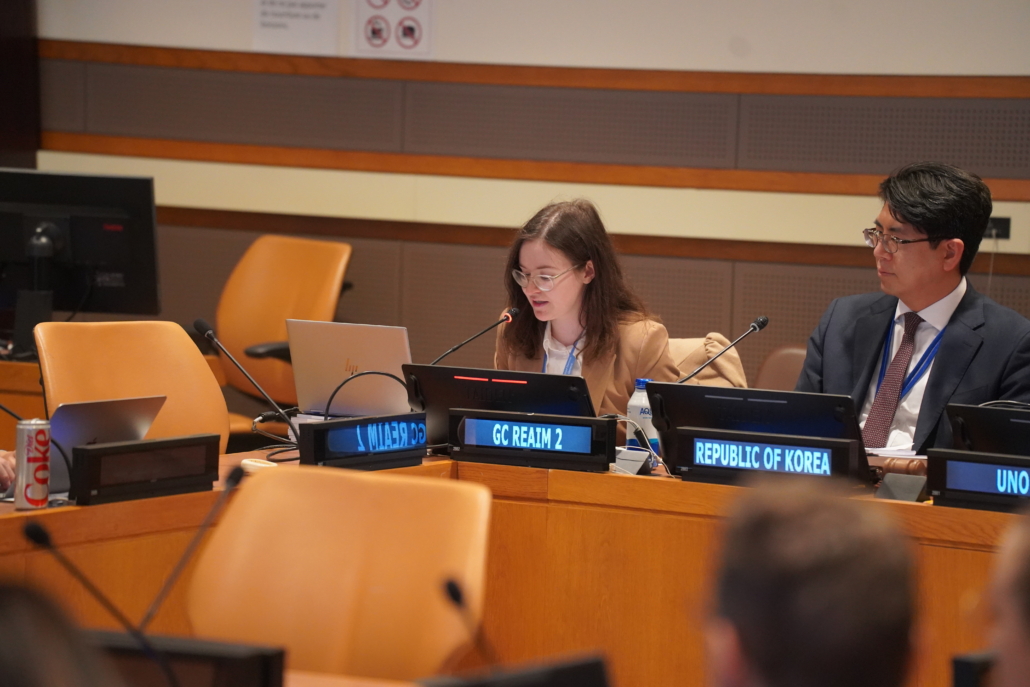
High Representative underscores urgency and significance of responsible AI governance
Izumi Nakamitsu delivered opening remarks highlighting the rapid evolution of international attention to AI. She noted that the Commission’s composition, representing a cross-regional and diverse set of expertise, could serve as a model for bridging policy choices to research expertise.
The High Representative identified five key contributions of the report directly relevant to UN General Assembly discussions on AI in the military domain. First, the report includes practical components such as guiding principles and life-cycle guidance for States. Second, it provides in-depth yet accessible coverage of technical AI characteristics that bridges the gap between technical and policy communities. Third, it presents the “responsibility by design” approach, which integrates ethics and legal compliance throughout the AI life cycle. Fourth, the report contains critical guardrails and red lines, including prohibiting AI from autonomously selecting and engaging targets and preventing AI integration into nuclear decision-making. Fifth, it recommends establishing a permanent and inclusive multilateral dialogue on responsible AI in the military domain, echoing a similar recommendation by the Secretary-General in his report (A/80/78).
Emphasis on human control of nuclear weapons
The High Representative took particular note of the Commissioners’ call for a legally-binding instrument to ensure that “the decision to authorize the use of nuclear weapons remains under human control.” She emphasized that the Secretary-General has been clear on this issue: until nuclear weapons are eliminated, any decision on their use must be made by humans. She encouraged States to use every available forum, including the General Assembly and the review process of the Treaty on the Non-Proliferation of Nuclear Weapons (NPT), to address the alarming potential convergence of AI with nuclear weapons. “It is vital that those who deal with AI policy and those who are responsible for policy related to nuclear weapons are both cognizant of the inherent risks at the nexus between the two,” she stated.
Report structure and content
Sofia Romansky, HCSS Project Coordinator, presented the report’s structure and content. The report is guided by the principle of ‘responsible by design’ and addresses inherent complexities at the nexus of the military domain and AI, examines risks and opportunities associated with AI integration, and provides guiding principles and core recommendations elaborated throughout the AI system life cycle, with specific guidance for states, militaries, and industry.
Expert perspectives
Michael Horowitz, GC REAIM Commissioner and Director of Perry World House at University of Pennsylvania, highlighted the need for a legally binding instrument on human control of nuclear weapons and noted that the report bridges the gap between civilian conversations about AI safety and military conversations about AI applications, providing practical recommendations that all States should be able to get behind.
Giacomo Persi Paoli, GC REAIM Expert and Head of the Security and Technology Programme at UNIDIR, emphasized that responsibility-by-design sends the right message: it is a deliberate choice and cannot be incidental. He also indicated that the report suggests plenty of actions that States can take at the national level to mitigate risks. He welcomed the conceptual and scoping clarity that the report makes to the field of AI in the military domain.
Call to action
Robert in den Bosch, Disarmament Ambassador of the Netherlands, noted that the Kingdom of the Netherlands had tabled a follow-on UNGA draft resolution on AI in the Military Domain (A/C.1/80/L.46) and invited feedback on the report. Ambassador Si-jin Song, Permanent Representative of the Republic of Korea, emphasized the need to ensure that innovation is grounded in responsibility. He noted that technology development advances faster than policy frameworks can handle, hence the need for a gradual and multi-stakeholder approach.
Ms. Nakamitsu encouraged the Commission to prioritize implementation of its recommendations at both national and multilateral levels and urged Member States to consider which recommendations could be taken forward in UN forums.
“This report lays out a strong foundation – but its real value will be measured by the actions it inspires,” she noted.
The full report is available at the GC REAIM website hosted by the Hague Centre for Strategic Studies.
Bron: United Nations, 7 November
